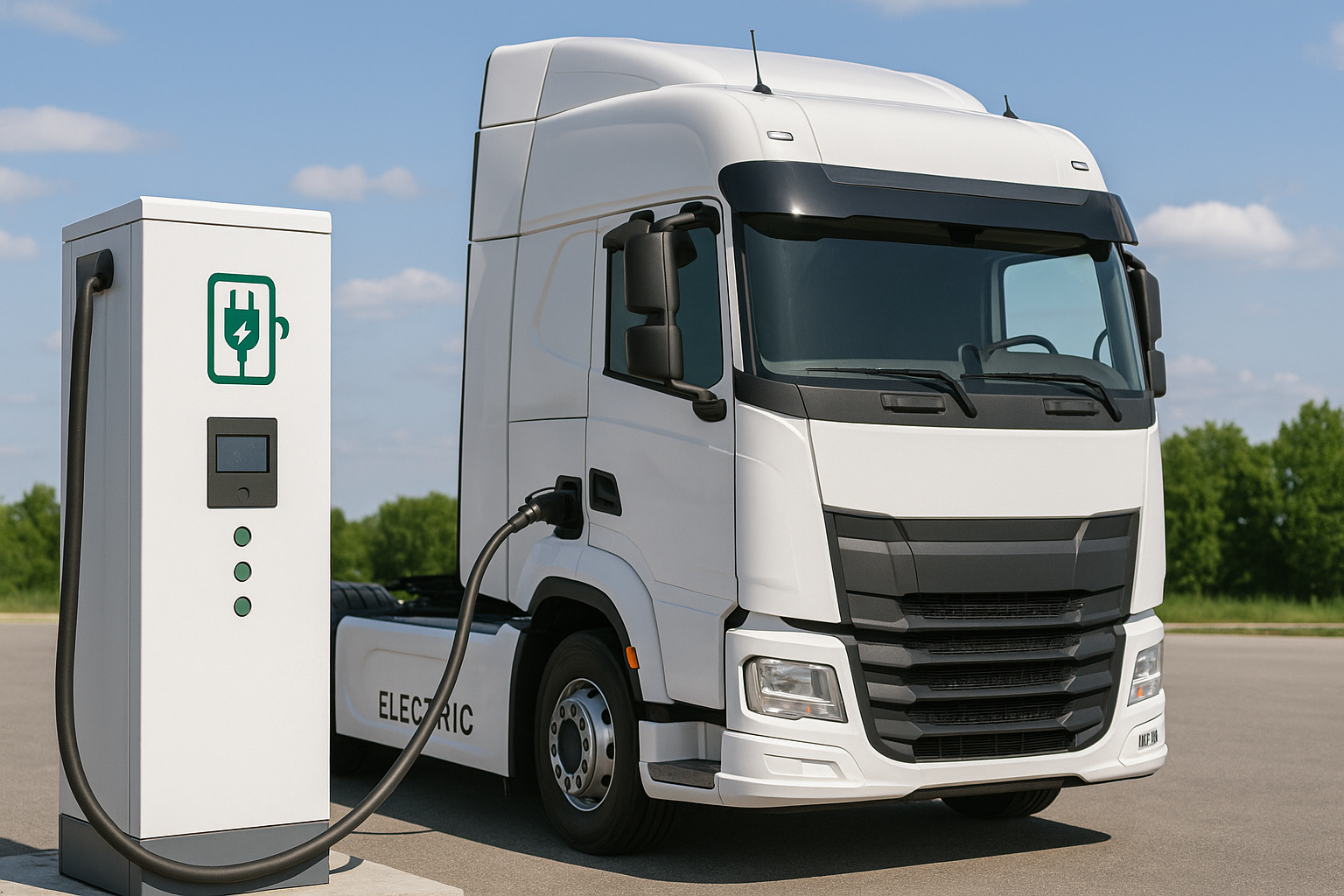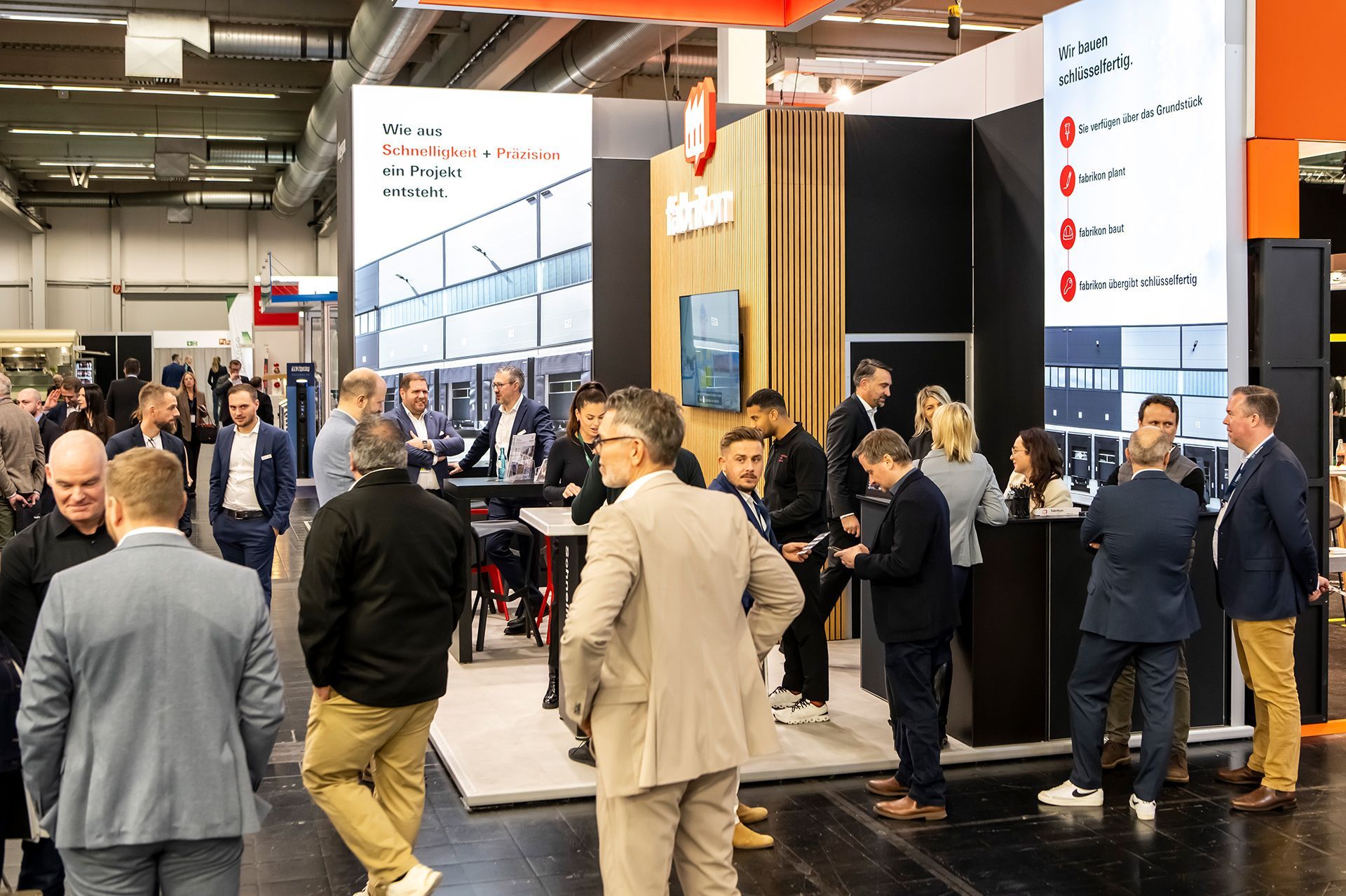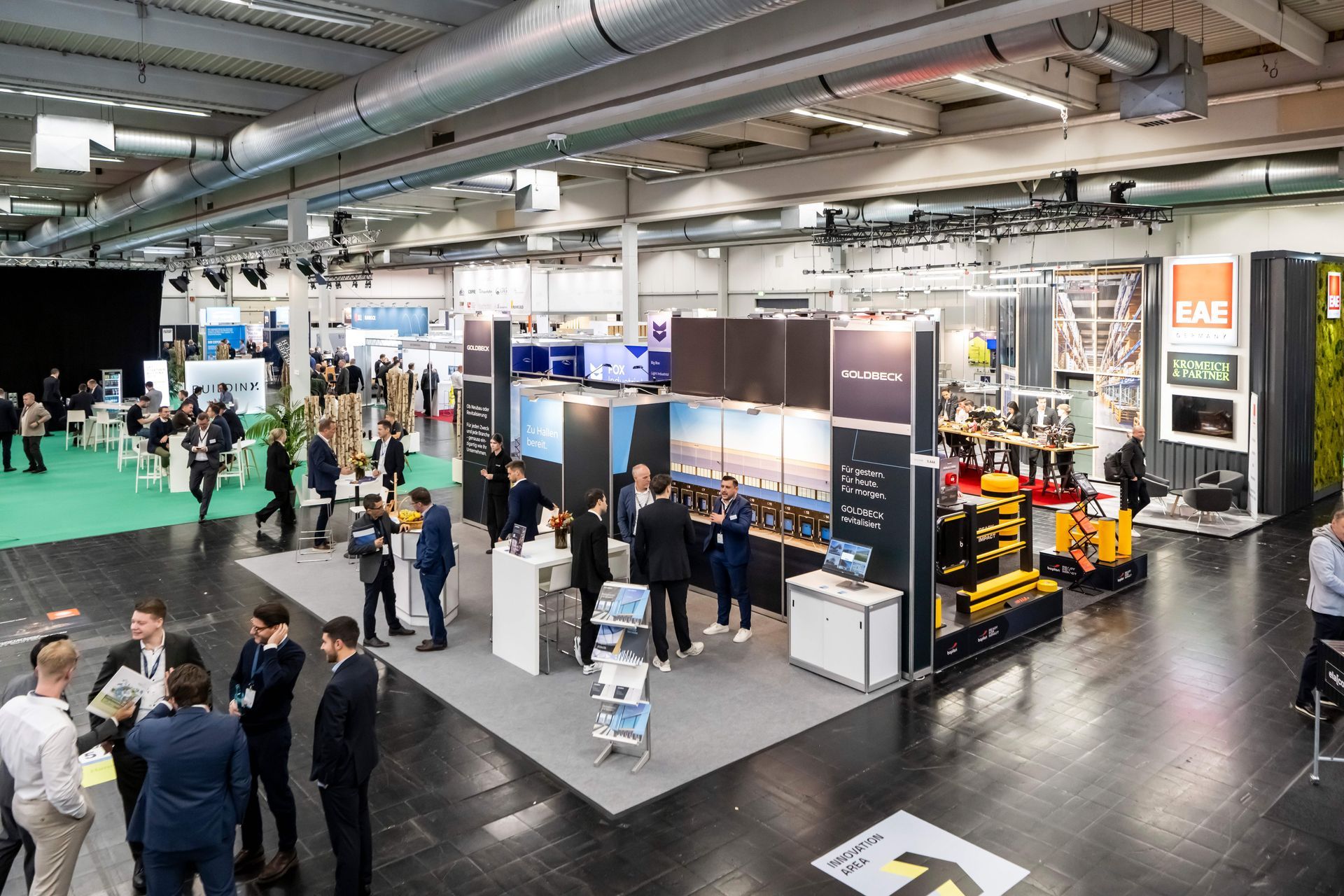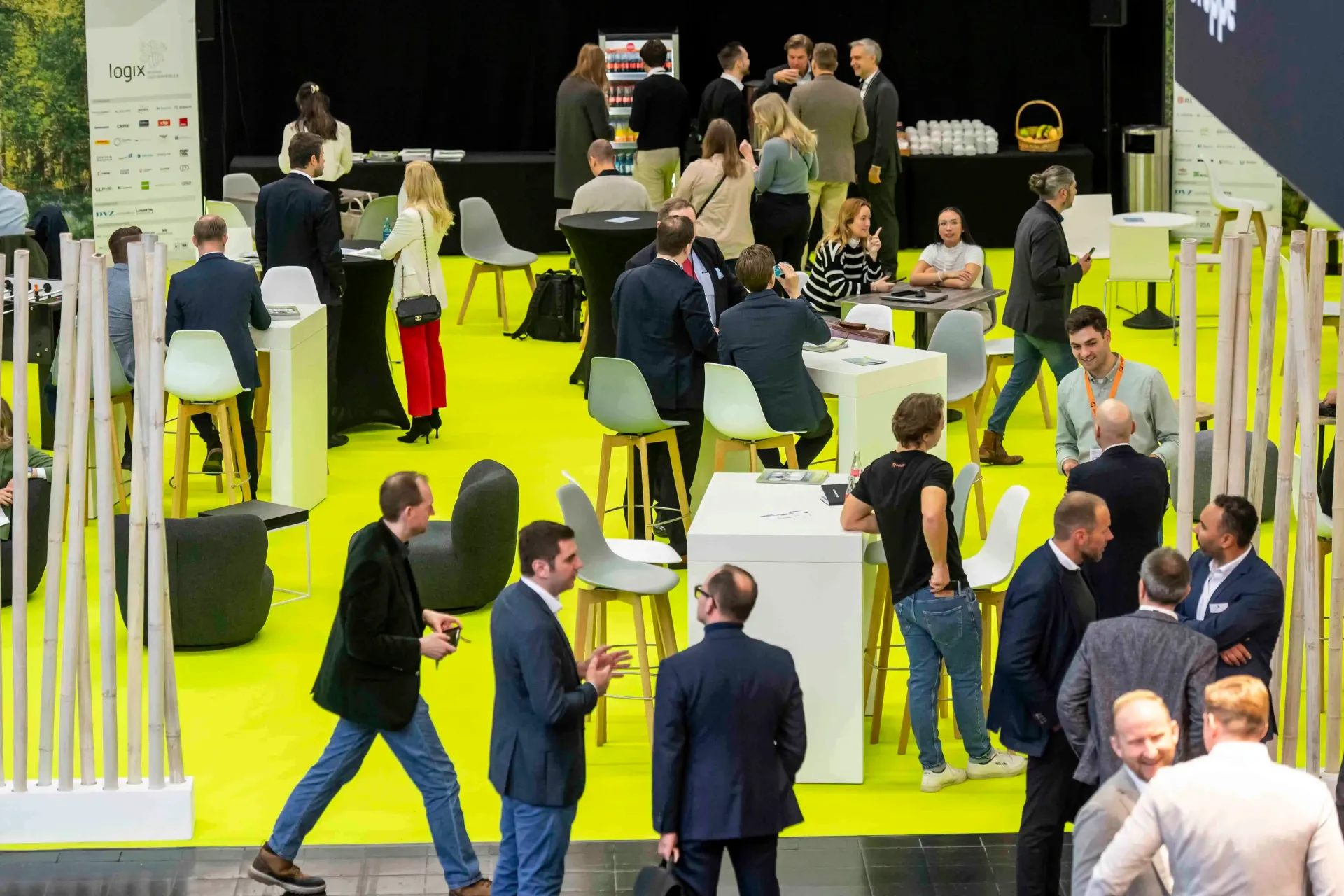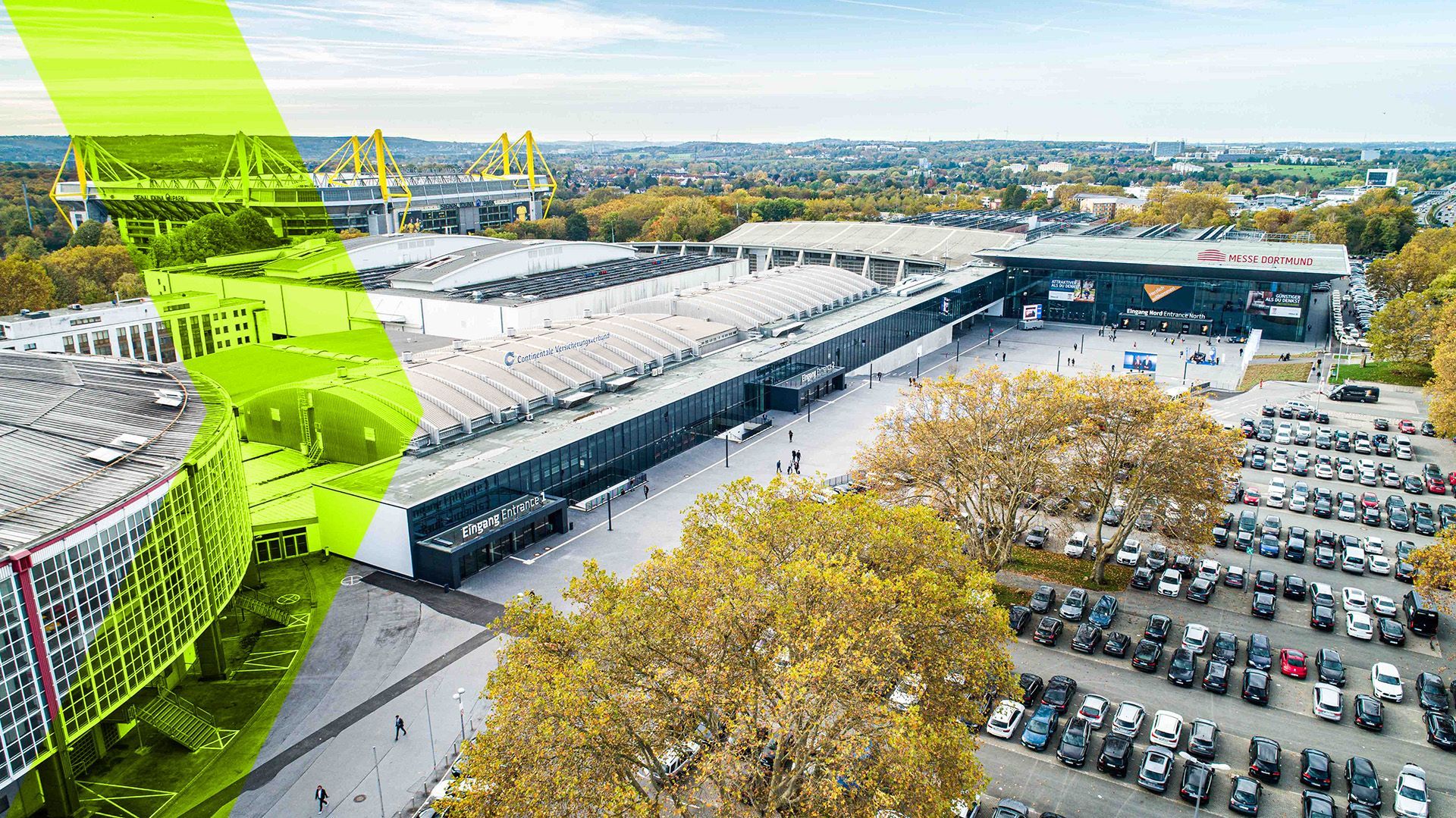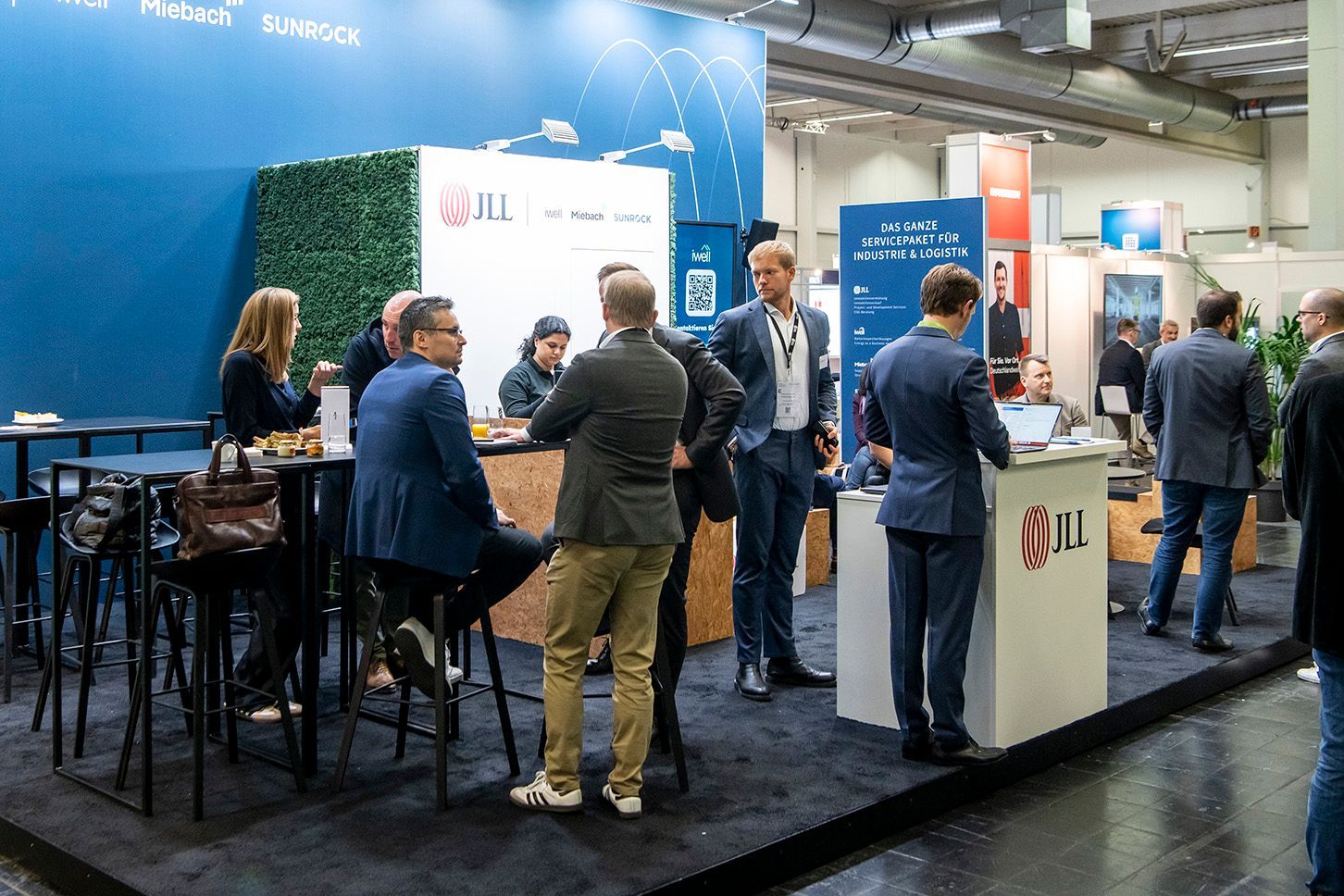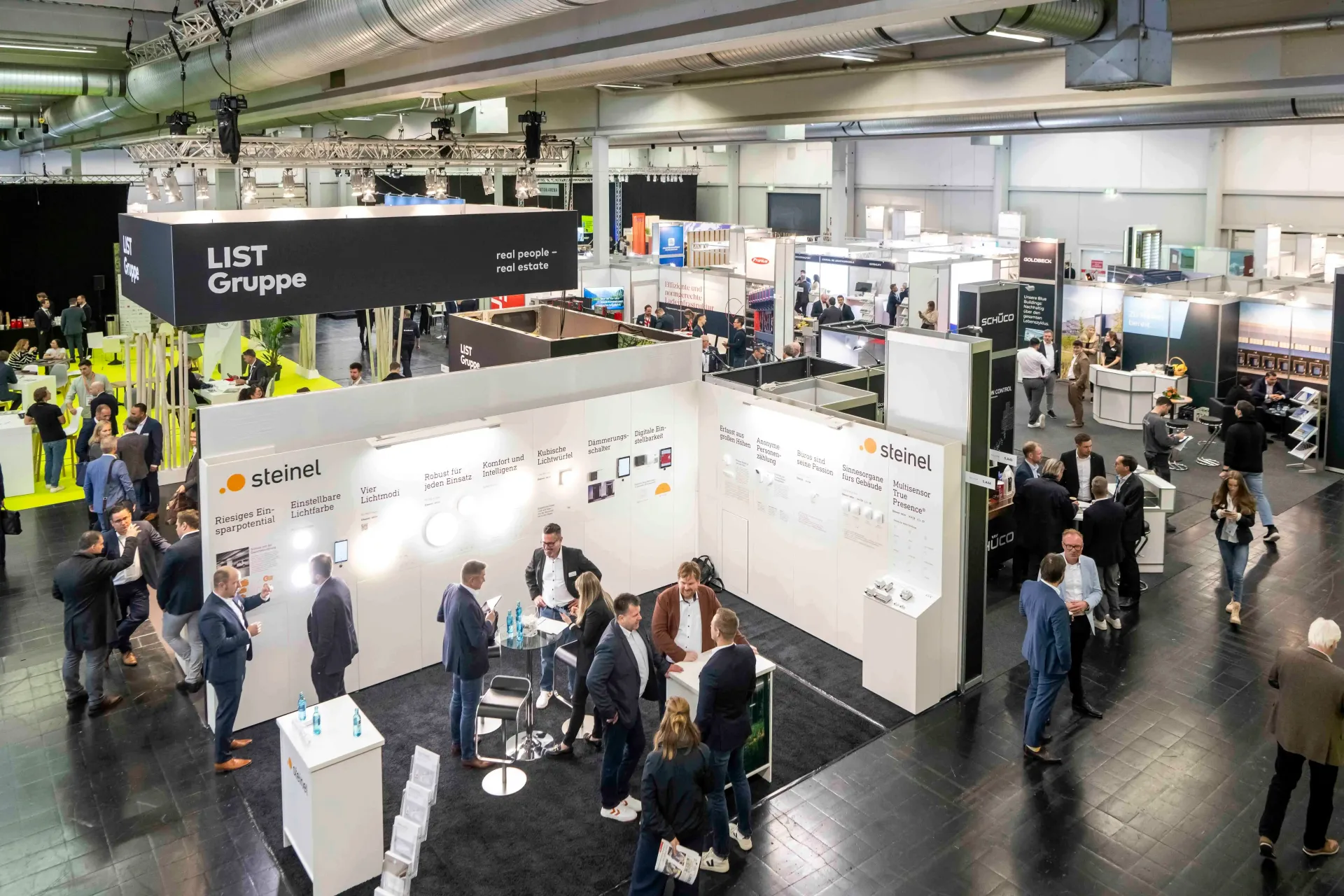Halls, hubs and high-tech in Dortmund
Logistics and industrial property show BUILDINX kicks off in Dortmund
When the buyer-meets-seller forum for logistics and industrial real estate gets underway on 18 November, trade visitors can expect a well-balanced three-day blend of trade show and specialist conference featuring numerous prominent industry experts from leading businesses and associations. It's already clear that BUILDINX – now in its second year – is holding its own despite the challenges in the overall economy, with exhibitor numbers unchanged as they convene to create valuable links between industry, trade, logistics and investors. The aggregate turnover of the businesses involved is in excess of 15 billion euros.
Dortmund, 18 November 2025 – This year, BUILDINX is once again bringing together all key providers behind sophisticated solutions, with major stakeholders in industry, retail, logistics and investment flocking to Dortmund where, at the logistical heart of Germany, visitors will find modern collaboration opportunities with a host of interactive formats aimed at inspiring creative thinking around current matters of interest in the industry as people gather to share ideas and develop new ones together. The show also attracts trade visitors from neighbouring European countries. “Dortmund is the beating heart of European logistics research, boasting numerous institutions, and the Ruhr metropolitan area has been one of Germany's foremost logistics hubs for many years now. With the second BUILDINX show, we've now succeeded in establishing a further key touch point for the industry in the region,” explained Sabine Loos, Managing Director of Westfalenhallen Unternehmensgruppe which owns and operates the Messe Dortmund venue. A third of all logistics turnover in Germany is generated in North Rhine Westphalia, and much of that in the key city of Dortmund whose central location, 760 businesses, excellent infrastructure and 25,000 employees in the logistics segment make it one of Germany's top logistics hubs.
Major partners emphasise the importance of BUILDINX
Joining the German Federal Logistics Association (BVL) – the show's conceptual sponsor – partners to the show include the German Brownfield Association (DEBV), the NRW Logistics Capability Network, the Swabian Logistics Cluster (LCS), the Logistics Properties Initiative (Logix), LogReal World, the PRO Logistics Real Estate Initiative, bauforumstahl (the leading association for sustainable steel construction in Germany) and the FOUNDERS FIGHT CLUB. “The broad support we're seeing from the key associations, expert networks and specialist forums in the logistics and industrial property sector underline the importance of this show to the industry. Thanks to our close collaboration with these experts and institutions, the show is an indispensable meeting place where trends, challenges and solutions are discussed at the highest level,” emphasised chief show organiser Sabine Loos.
Programme highlights
Via the BUILDINX focus group within its logistics property working group, the German Federal Logistics Association (BVL) is masterminding the top-class conference programme flanking the show. The vast range of topics covers the main up-to-the-minute issues in the world of industrial and logistics property, such as how
geopolitical factors are reshaping the logistics and investment environment, what is to be made of the growing significance of the
defence sector for logistics properties, how to create a
resilient industrial or logistics property in economically strained times, the role of
AI and data intelligence in this (and beyond, both now and in future), how
solar power systems can help turn logistics centres into mini power stations for their geographical surroundings, and what potential can be unearthed by
revitalising disused industrial sites and making flexible use of land resources. The speakers at BUILDINX will be providing answers to these and many other questions, offering valuable insights into facts, figures and data.
Innovation Area and Founders Fight Night
The Innovation Area at BUILDINX provides a stage for current topics and projects undertaken by ambitious entrepreneurs: Day 1 looks at best practices, showing how local authorities can achieve climate targets operationally, from serial refurbishment to energy management. Day 2 is all about artificial intelligence in practice, with predictive maintenance, digital twins and operational automation set to be discussed live with users and providers. Day 3 will focus on city and logistics hubs, secure parking systems and resilient energy modules.
FOUNDERS FIGHT NIGHT will once again see start-ups competing against each other in a rhetorical pitch fight in a boxing ring to convince a panel of experts of their product or service within a short space of time. The winner of each round will be chosen by those in the auditorium.
